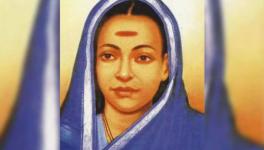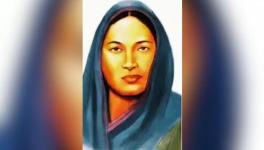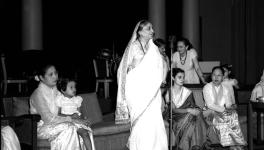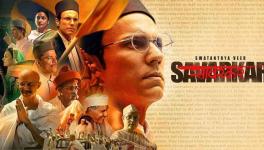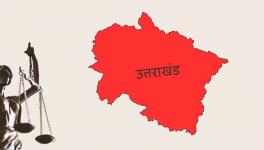Two Films That Explored Effects of Patriarchy on Men
Representational use only.Image Courtesy: Max Pixel
“Log hain jo ek jagah se doosri jagah jatey hain. Mai hun jo kahin se chalke kahin bhi chala ja raha hun… Pata nahi, mai kahan ja raha hun, kyun ja raha hun—People go from place to place, but I travel without destination. I don’t know where I am wandering and why.”
These are the opening lines of 27 Down, Awtar Krishna Kaul’s 1974 drama film. The disillusionment of protagonist Sanjay becomes evident with this self-proclamation. He travels restlessly through the narrative—to escape, self-preserve, and find relief. But for a man who cannot decide is going nowhere. Wherever he goes, he carries his turmoil. He has no answers and no paths to escape. He is forever running away.
Sanjay is a sad man with a repressed childhood. Raised under his father’s tyranny, his childhood curiosity—‘how does the train stop when the chain is pulled?’—is discouraged. Father’s mere voice makes him alert. He gives up his resistance to drink milk at the mere sight of father. Sanjay says, “Mere bachpan ka ek bhi din nahi jo flash ke tarha chamke—Not a day of my childhood stands out.”
Constantly derailed by patriarchal impositions, he is unable to resist—he wanted to be an artist, but his father compelled him to work for the Railway for free quarters, coal, and a free travel pass. Father said, “Patri pe chalne ki adat daal lo, tabhi kuch ban payoge—You must walk on the beaten track to become somebody.” Sanjay barricades himself in the crowd and noisy whistles of passing trains.
He could not refuse the railway job nor the imposed marriage. With his lack of agency, decisions are taken for him, and he gets tangled in them. The linear railway track becomes a metaphor for the monotony, burdens and lack of freedom to live on his terms. He acknowledges his movements are on a pre-determined track: “Disha tae hai aur isharon pe chalna padta hai—The destination is fixed. One only has to keep following instructions.”
He meets Shalini one day on a crowded train. A modern, educated, working, confident woman, unlike Sanjay, she has taken charge of her decisions and is capable of asserting her female agency. She does not hesitate to invite Sanjay to her place, where she lives alone, nor shies away from public displays of affection. At the Marine Drive, she slips her arms around his shoulder. Sanjay claims to have lost faith in trains and the cacophony of traffic.
We see a glimmer of hope. But Shalini knows her grandfather will not accept his presence in her life.
The faint shimmer of another possible life officially dies when Sanjay’s father arranges his marriage against his wishes. He does not get a chance to discuss this with Shalini. Unpardonable, he knows, yet he cannot defy father’s orders. He confesses to his wife what he discarded like dust. Sanjay’s wife is suspicious, binding, insecure, and inquisitive. Compatibility is impossible here. Tradition and modernity are in conflict. She comes from a feudal family with land and cattle. A tight close-up of the eyes of the buffalo she brought as a dowry and Sanjay’s eyes makes the feudal-urbane misunderstanding clear. They are unable to cope with these differences.
Sanjay bumps into Shalini one day. She, the woman, has moved on, while the repentant man is standing where he stood, self-pityingly saying: “Mai kuch aur banna chahta tha, lekin ban gaya kuch aur—I wanted to be somebody but became somebody else.” Denied the possibility of return, he opts for more restless runs of the train, but only to realise, “Mai guzar jata hun, aur jageh khadi reh jati hai; sawal khade reh jate hain—I pass by, but places remain as they are, questions remain standing too.”
When he meets Shalini again, she claims she is more mature, fearless and stronger, prompting Sanjay to propose they meet again. They agree, but she does not turn up. Lost and dejected Sanjay, in the last shot of 27 Down, has nowhere to go or return to and nowhere to run away.
****
Samar in Sara Akash, Basu Chatterjee’s 1969 Hindi film, leaves the audience feeling more optimistic though he appears helpless and uncomfortable in his unwanted marriage. A studious idealist, he finds his behaviour towards his wife at odds with his ethical standards. At first, he tried to dodge marriage, saying he wanted to ensure an independent future for himself before tying the so-called knot.
His father mocks his reference to the future, “Tumhara hi toh future hai. Is ghar ka toh kuch future hai nahi—Only you have a future, this household doesn’t?” So the interests of the family get priority over Samar’s choices. The family needs a helping hand—a woman for Samar. It also needs the dowry income from the son’s marriage to compensate for their daughter’s failed wedding. Unwilling and disinterested, we see Samar as a groom, then Samar running towards the camera, away from the band-baja, while his suffocating voice says, “Bhago Samar. Bhag jao—Run Samar. Run away!”
But he ultimately lacks the courage to resist the patriarchal imposition, and to the end, Samar and Prabha exchange no dialogues. Samar fails to accept, accommodate or access his wife. His patriarchal expectations expect Prabha to bow to his desires, which she observes silently, without reacting. He mistakes distance for pride in being educated and misinterprets silence as an insult.
As the distance between them grows, the apparently progressive Samar expects more and more submission from Prabha. They walk wide apart as they step out to watch a movie. He shies away from introducing her to his friends. Prabha is handed an array of household chores to handle. Samar’s mother and sister-in-law taunt and chastise her—“Aag lage aisi padhai ko—to hell with such education!” Samar’s sister finds Prabha’s watch, which no longer works. Once, Prabha used it to tell the time when she would get ready for school. Everything else other than unconditional submission seems useless. Prabha is often snubbed for talking back by her mother-in-law.
All three women work as collaborators of patriarchy. Samar’s mother views her as an extra helping hand. Samar’s sister is considered a burden on the family and does not have a voice. Samar’s sister-in-law is jealous that she is educated and constantly instigates Samar against Prabha. She tells Samar: “Daba kar rakhna, pachtayoge nahi to--Subjugate her, else you’ll repent.” Samar slaps Prabha when she accidentally uses worshipped clay to clean utensils, then immediately breaks into a remorseful cry. In the following monologue, he ridicules his idealism and calls himself a coward.
Samar repents but cannot apologise. He wants to console her as she cries but hesitates. It takes a lot of effort for the man to break the silence, overcome the barriers imposed by patriarchy, approach his wife, laying off his guard to ask why she is crying. Prabha replies: “How does it matter if you ask me this after tormenting me so much?” Samar urges her to forget everything as they hug. Laying on his back, he looks at the bright sunshine in the sky instead of the dark skies that appeared many times earlier. Yet, are the silences and actions of Sanjay and Samar forgivable and forgettable by women who suffered for not fault of theirs? It won’t be wrong to say that it all starts at home. A patriarchal family is a repressive institution that oppresses women and men. Its participants are not just men but women too. The loss of agency is not merely due to the frailness of these male characters but because of the weight of patriarchy, which permeates the family structure, determining actions and expectations and undermining individual agency.
While Sanjay spends days on trains, Samar often watches trains at the railway station. Trains as metaphors for the possible escape of male protagonists or as facilitators of flight from imposed circumstances recur in both films. So does the positing of tradition and modernity. So does the inability of men to resist patriarchal impositions. Their dreams get sacrificed and sabotaged by other men. And it does tremendous injustice to the women around them. That is true for any oppressive force: It affects men as well as women—though not equally.
The author is a sociologist with Shiv Nadar University and author of Consumerist Encounters: Flirting with Things and Images. The views are personal.
Get the latest reports & analysis with people's perspective on Protests, movements & deep analytical videos, discussions of the current affairs in your Telegram app. Subscribe to NewsClick's Telegram channel & get Real-Time updates on stories, as they get published on our website.










